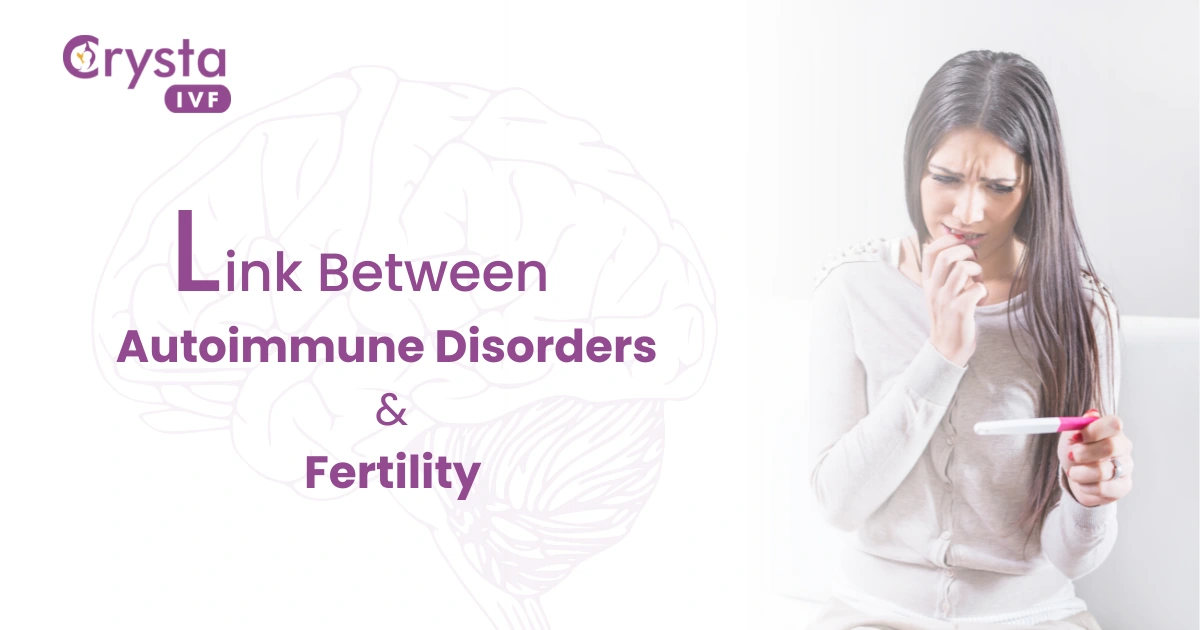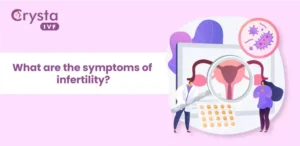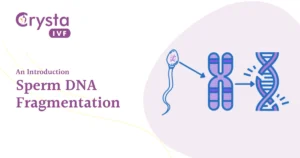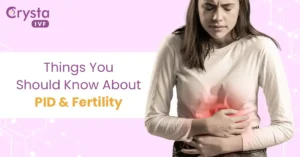Have you ever wondered how drastically certain autoimmune disorders can affect your fertility and change your whole life? If not, now is the right time to think about it. Despite knowing that being able to conceive without trouble is every couple’s dream, due to poor lifestyle choices, a degrading environment, and severe health issues, conceiving naturally has become next to impossible.
Earlier, it was believed that fertility complications could only arise due to difficulties in the reproductive organs. However, conceiving naturally has become a fragile dream with the inclusion of autoimmune disorders in our lives. So, in this article, we will talk about the vital connection between autoimmune disorders and fertility and how you can deal with it with the help of the advancement of technology in healthcare.
Autoimmune disorders: Know them better
An autoimmune disorder is a type of disorder that results when your immune system estimates your tissues or cells as foreign. The white blood cells present in your circulation attack this tissue, leading to inflammation and damage that makes the tissue unable to function properly. Usually, autoimmune disorders affect the thyroid gland, joints, and ovaries. Though more than 80 autoimmune conditions affect the human body, the most common ones are found to be very troubling not only for fertility but for the overall health condition of an individual.
Common autoimmune disorders
The most common disorders that impact negatively on health are:
Type 1 diabetes
The pancreas works to produce the hormone insulin, which helps regulate blood sugar levels. In type 1 diabetes, the immune system attacks and destroys insulin-producing cells in the pancreas. This condition can’t be cured; you need to control your blood sugar level throughout your life, as it can damage the blood vessels and main organs such as the heart, kidneys, eyes, and nerves. Also, this disease passes from generation to generation, making it impossible for couples to conceive naturally and start a family.
Rheumatoid Arthritis (RA)
RA is a disorder in which the immune system attacks the joints and causes redness, warmth, soreness, and stiffness in the joints. It has been observed in people as young as their 30s. Its relation to fertility is rather complicated; a woman with rheumatoid arthritis may get pregnant, but there are fewer chances of it being successful. RA increases the risk of miscarriage and low-birth-weight delivery with too many complications in the pregnancy phase.
Multiple sclerosis
Multiple sclerosis is known to damage the protective coating surrounding nerve cells in your central nervous system. This damage slows down the speed at which information passes between your brain and spinal cord and to and from the rest of your body. It leads to numbness, weakness, balance issues, and trouble walking. In many cases, it is seen that women with multiple sclerosis are less likely to give birth naturally and are more likely to suffer from female infertility.
Systemic lupus erythematosus (SLE)
It is a skin disease, and because of the rash it commonly produces, it affects many organs, including the kidneys, brain, joints, and heart. Research shows men and women with lupus are at a higher risk of reproductive health problems, including infertility.
Inflammatory bowel disease
It is a condition that causes inflammation in the intestinal wall lining, and each type of IBD affects a different part of the GI tract. The surgeries and the use of drugs or therapy to treat IBD affect the fertility of both men and women.
Celiac disease
The immune reaction to eating gluten leads to inflammation that damages the small intestine’s lining, resulting in numerous medical complications. It is strictly linked to miscarriages, preterm labour, low birth weight, and stillbirths, making it impossible to conceive naturally.
Graves’ disease
It is the common cause of an overactive thyroid. If left untreated, you may have irregular, lighter periods, making it difficult to conceive.
Pernicious Anemia
One can develop anemia due to a lack of vitamin B12. It affects the body’s ability for proper DNA synthesis. If untreated, it can become the primary cause of both female and male infertility.
Anti-sperm antibodies
The immune system in men can create antibodies that may reduce the sperm’s motility and ability to fertilize an egg. These antibodies are typically found in men with a rich history of testicular trauma or testicular surgery (vasectomy, vasectomy reversal, or varicella reparation).
Decreased ovarian reserve
Women with autoimmune disorders must get their ovarian reserves tested. Suppose the levels of two hormones, FSH (follicle-stimulating hormone) and AMH (anti-mullerian hormone), are abnormal. In that case, it indicates that your ovarian reserve has been depleted, and you cannot conceive naturally.
Thyroid
This disease is a common autoimmune condition that makes it difficult to conceive naturally. It interferes with the release of an egg from your ovaries and the time of ovulation, negatively impacting a woman’s fertility.
Is it possible to conceive with an active auto-immune disorder?
We all know nothing is impossible in the age of science, and since the healthcare sector is advancing day by day, any couple affected by autoimmune disorders can plan for a healthy baby. So, if you are diagnosed with an autoimmune disease, seeking treatment can enhance your chances of fertility and make you the happiest couple in the world. Though specific therapies can increase your chances of naturally conceiving, there is a slight chance that they can help you plan for a baby. Thus, couples concerned about the impact of autoimmune conditions on fertility should seek medical advice from fertility specialists or IVF specialists to minimize the risks and plan for a healthy baby.
When to seek help?
If you suffer from autoimmune disorders, you can also plan for a healthy baby and start your family. You only need to consult a fertility specialist at the most-recognized IVF center, Crysta IVF.
Here, we do not follow only rigid protocols based on age and medical history; personalized treatment is provided to monitor you more closely. As we take into account that hormone levels in a male or a female change on a day-to-day basis, Our top IVF doctors are always ready to look into matters with their highly skilled teams to bring out the best possible results.

To provide attention even to minor details, we provide infertility treatment in Delhi NCR by using the most up-to-date technologies and pioneering new techniques to make every couple’s dream a realistic one so they can enjoy their parenthood journey to the fullest.




